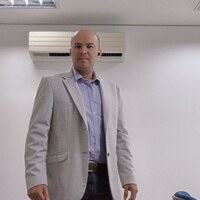Biological Control Of Monilinia Fructicola (G. Winter) Honey Using Two Isolates Of Bacillus Subtilis On Peaches
Fecha de creación: 23/11/2024Tipología: Productos Resultados de Actividades de Generación de Nuevo Conocimiento
- Detalles del producto
- Asociaciones
- Autores
- Objetivos de Desarrollo Sostenible
- Identificadores asignados (DOI/ISBN/ISSN)
Resumen del producto
La pudrición parda del duraznero causada por Monilinia fructicola afecta al género Prunus en el campo y especialmente
en poscosecha, provocando pérdidas de hasta el 60% en los frutos cosechados. El manejo de la pudrición parda
actualmente se realiza mediante la aplicación de fungicidas químicos que generan fitotoxicidad en los frutos y contaminación
en el ambiente. Esto aumenta los costos de producción, demanda la identificación de diferentes estrategias
para el manejo de enfermedades. Esta investigación tuvo como objetivo evaluar los efectos de biocontrol de dos
aislados de Bacillus subtilis (CB10 y CB11) contra M. fructicola mediante pruebas in vitro en medios y en frutos inoculados
versus un control químico con el fungicida diclorán como un control positivo. La inhibición del crecimiento del
patógeno así como la severidad y tasa de inhibición de M. fructicola se evaluaron en cultivos duales. El aislado CB10
en los cultivos duales logró una tasa de inhibición (biocontrol) del 88,5%, muy superior a los demás tratamientos
evaluados. En el fruto inoculado este aislamiento CB10 logró un porcentaje de inhibición del patógeno del 95%,
superior a otros tratamientos, incluido el fungicida diclorán. La investigación permitió afirmar que B. subtilis CB10
podría utilizarse en el biocontrol de M. fructicola para durazno en el manejo de la enfermedad de pudrición parda.
Abstract del producto
Brown rot of the peach tree caused by Monilinia fructicola affects the genus Prunus in the field, and especially
at postharvest, causing losses of up to 60% of the harvested fruits. Brown rot management is currently done
using the application of chemical fungicides that generate phytotoxicity in the fruits and contamination in
the environment. This increases production costs, demanding the identification of different strategies for
disease management. This research aimed to evaluate the biocontrol effects of two isolates of Bacillus subtilis
(CB10 and CB11) against M. fructicola using in vitro tests and inoculated fruit versus a chemical control with
the dicloran fungicide as a positive control. The inhibition of phytopathogenic growth as well as the severity
and rate of inhibition of the M. fucticola were evaluated in dual media. The isolate CB10 in the dual cultures
achieved an inhibition rate (biocontrol) of 88.5%, much higher than the other evaluated treatments. In the
inoculated fruit this isolate CB10 achieved a rate of inhibition of the pathogen of 95%, higher than other
treatments, including the dicloran fungicide. The research allowed us to affirm that B. subtilis CB10 could be
used in the biocontrol of M. fructicola for peaches in the management of brown rot disease.
Palabras clave
biocontrol; efecto antifúngico; bacterias antagonistas; pudrición parda; frutos de hueso.































